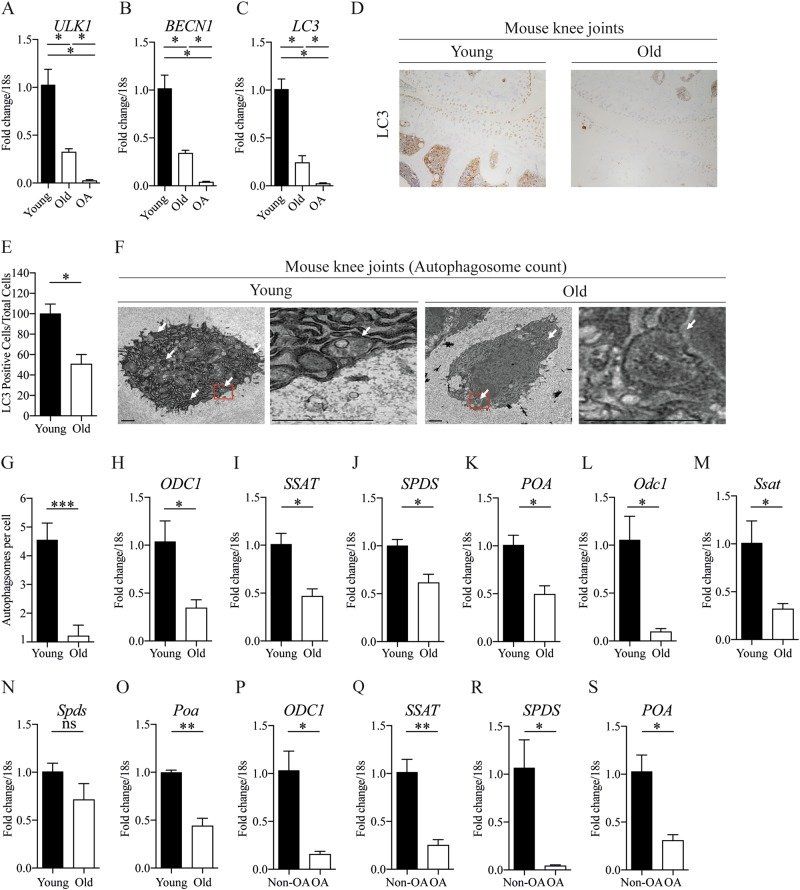Spermidine restores dysregulated autophagy and polyamine synthesis in aged and osteoarthritic chondrocytes via EP300
Conflict of interest statement
The authors declare that they have no conflict of interest.
Conflict of interest statement
The authors declare that they have no conflict of interest.
Fig. 1. Decreased autophagy and polyamine synthesis in aged and OA human and murine cartilage. a–c Autophagy gene expression in isolated chondrocytes from young (21–37 years), old (62–68 ) and OA (49–86 years) knee joints (n = 3). d Representative images (x20) of LC3 protein expression in knee joints of WT mice at 2 months (young) or 16 months (old) of age. e Quantification of LC3 positive cells/total from murine knee joints (n = 4). f Representative EM images of chondrocytes from microdissected cartilage obtained from knee joints of WT young (2 months) or old (16 months) mice. White arrows highlight autophagosomes. Red boxes highlight the area of magnification. Scale bars: 1 μm. g Quantification of autophagosomes in chondrocytes (microdissected cartilage) from murine knee joints (n = 18 cells per mouse. six mice used). h–k RT-qPCR analysis gene expression of key enzymes involved in polyamine synthesis from isolated chondrocytes from young healthy (21–37 years) or old (62–68 years) (n = 3). l–o RT-qPCR analysis gene expression of key enzymes involved in spermidine synthesis in microdissected cartilage obtained from knee joints of WT young (2 months) or old mice (16 months) (n = 3). p–s RT-qPCR analysis of gene expression of key enzymes involved in spermidine synthesis in non-OA and OA human chondrocytes (n = 3). All RT-qPCR gene expressions were normalised to the endogenous level of 18s. All data are expressed as mean ± S.E.M of n observations. Students unpaired t-test was used for statistical analysis. p < 0.05, p < 0.01 or p < 0.001 represented in all tables and Figures as *, **, or ***, respectively. NS non–significant


